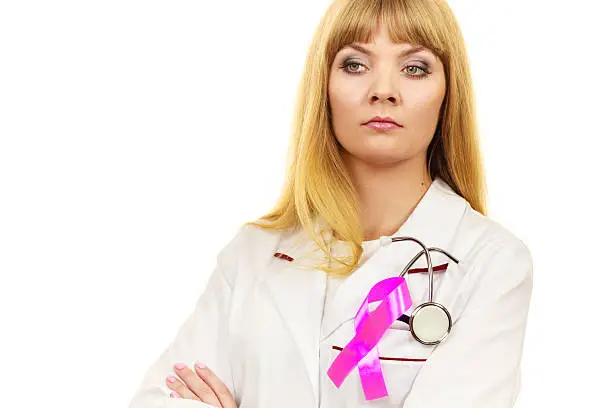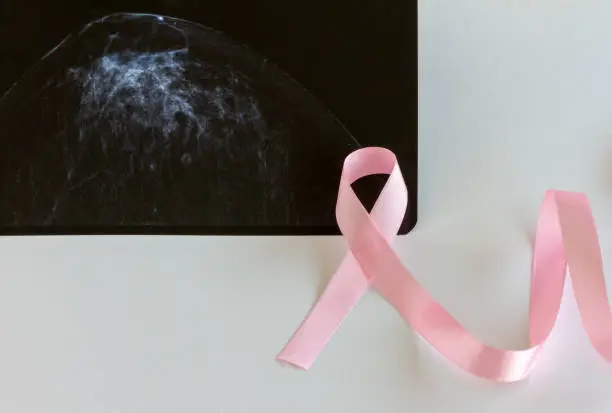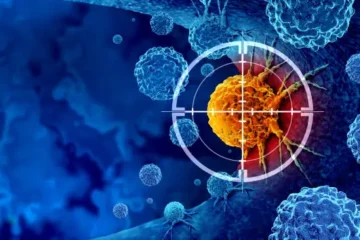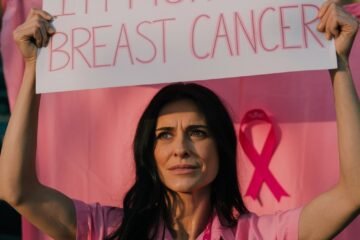“Cancer doesn’t grow like that,” Elizabeth Vines’ was told by their healthcare provider. Two months later, Vines learned it was stage 3 breast cancer.
In February 2014, I noticed a pea-size lump in my breast near the armpit area. I just found it there, and I was shy about saying something. Then, one month later, I visited my family healthcare provider for something unrelated and thought, “What the heck? I’ll show him.”
Diagnosed With a Breast Cyst
He never even really looked at it. He was like, “I wouldn’t worry. You don’t have any family history. You’re young.” I was 35, so I took that at face value, and the lump stayed the size of a pea until about September 2014. Then it started to grow rapidly.

My family and I were on vacation in Maui (my son, Jack, was four at the time), and my husband started getting very concerned. I could tell he didn’t want to scare me, but he was almost insisting that we go to a hospital in Hawaii to have it looked at. So I called my healthcare provider’s office and asked to set up an appointment when I got back.
So I returned and my health provider checked it and said, “It’s not a form of cancer. Cancer does not grow this way. It’s simply a cyst.” He then added that the next steps involved the potential of an ultrasound but, he did not believe me to need one. So I went out of there without any bookings, and a few days later, I started thinking about it. I began to get a little worried. At that point, the “cyst” was half the size of a lemon. You are trying to trust what the healthcare provider is telling you, but at the same time, you have this feeling in the back of your mind that things aren’t quite right.
I called his office and asked to have an ultrasound for the breast cyst set up. Between my healthcare provider and the receptionist they were acting like I was a hypochondriac and like I was wasting their time. “Well, he says you don’t need it, but.” Comments like that. I normally have a great, friendly relationship with my healthcare provider’s office. That’s why I think I trusted him so much.
I waited about three or four weeks for the ultrasound. It came back as all “cystic components,” meaning it wasn’t cancer. So my healthcare provider said, “Let’s refer you to a breast surgeon at the breast clinic, and they can remove the cyst for you.”
Learning the Breast Cyst Turned Out To Be Cancer
I waited another three or four weeks for that consultation, and when I went to the breast clinic on November 24, 2014, they did a quick exam in the room before sending me for a mammogram. Suddenly, everybody looked very concerned, which was shocking because I went there thinking it was a quick consult. So I figured I’d stop in and go Christmas shopping afterward.
They did the mammogram and brought me back into a room, and told me right then that I had cancer. I was a bit argumentative, saying, “How do you know without doing a biopsy?” And they said, “We can tell by the patterning of the cells.” They told me it was a 12-centimeter tumor.

I had to wait for biopsy to know the nature of the breast cancer. And after that, I waited for two days. Then I underwent bone scan and CT scan. From that point, I needed someone in oncology to see; that was in a different department, and they were saying they cannot see me until the new year.
My husband had done other big-hospital research, and we went to Mayo Clinic in Arizona since we had family out there, at which point we were living in the Seattle area when I was diagnosed. The day before I left, I just gave a cursory discussion with the local oncologist; she told me while chewing her gum that she thought I had maybe another couple of years to live.
I recall going home, walking to my bedroom, and curling up on the bed. I was kind of in a delirium. All I could worry about was whether I should be buried or cremated. All the husband could say to me is, “Who cares about her? We’re off to Mayo Clinic. It’ll be fine.” He just kept repeating that because to me, nothing would have been different in Arizona, and that was just what I thought.
Starting the Treatment Process
Everything changed the day we arrived in Phoenix and stepped inside the hospital door. The way they spoke to me and the way their attitude was toward me—everything was just the opposite of what I experienced at home. I saw the surgical oncologist first. He explained everything that was going to happen and handed me over to oncology since the tumors were more than five centimeters, which required chemotherapy before surgery.
The oncologist didn’t believe I had another day to waste before starting chemo—he thought by then I probably had cancer for at least nine months. He told me I was in for a really rough year, but he said there was a light at the end of the tunnel, which is exactly what I wanted to hear.
Initially, back home, they had diagnosed me with stage IV breast cancer because they thought cancer had spread to my liver. But when I got to Mayo Clinic, after they looked at all the imaging, they thought within 90% certainty that it was not cancer on my liver and downgraded me to stage IIIB. But we were still waiting to find out whether the cancer was a type known as HER2-positive.
According to MedlinePlus, a resource of the National Library of Medicine, HER2-positive breast cancers mean that there are high levels of human epidermal growth factor receptor 2 protein (HER2 protein). Too much HER2 tends to cause cells to divide, grow, and spread faster.
“HER2-positive breast cancer is a breast cancer that tests positive for a protein called human epidermal growth factor receptor 2 (HER2), which promotes the growth of cancer cells…[it] tends to be more aggressive than other types of breast cancer.”.
The plan was for me to have two chemotherapies once every three weeks for six sessions. But two sessions into that, my HER2 test came back positive, and so my oncologist added in Herceptin and Perjeta, which he called “anti-HER2 therapy”.
Chemotherapy went from being $1,400 a treatment to $56,000 with the anti-HER2 drugs. And we didn’t have insurance at the time; we were out of pocket on everything. So when they first told us how much it would cost, I said, “We should just go home, that’s it.” My husband, God bless him, said, “No, we’re not going home. We’ll mortgage our house. If we have to sell our house, we’ll sell our house.”
I looked up Perjeta online and there was a link to the manufacturer’s website, Genentech. The link said if you don’t have insurance, they may cover the cost of their drugs, including Herceptin. So I printed the forms, filled them out, faxed them in, and Mayo Clinic filled out their portion. Then, a couple of weeks later, I got this random phone call from a Genentech’s Access to Care Foundation rep saying they had approved me.
When I told them I had already paid for four treatments—because my first dose of the anti-HER2 drugs was a double dose—they said, “We’ll backdate it.” So I still paid the $1,400 per treatment for the based-chemotherapy, but they paid for their two drugs. It was incredible.
I did my six treatments; my last one was on my son’s fifth birthday. My nurses remembered and brought him a cake and everything, which was very sweet.
After discussion with my healthcare providers, I ended up having a single mastectomy with immediate reconstruction at the same time. A year later, I had a preventative mastectomy with reconstruction done on the other side. Then I did six weeks of radiation, then went home. Because I was HER2-positive, I also had to keep on going on Herceptin. I had to go to Arizona every three weeks to receive it, for three days at a time for the next year. Still, I was incredibly upbeat. Once you start getting hair growing back and your healthcare providers are saying that the worst is over, you’re on a bit of a high.
Life After Treatment
My biggest fear was a few weeks after I was done with my treatment. Because, as I told my oncologist, who’s now such a good friend of mine, When you’re on chemo, you get the security of seeing your whole medical team every three weeks. That makes you feel like-How could anything be going wrong? Things can’t grow on chemo. And then you finish treatment, and you’re just done seeing everybody. It’s frightening. The first two years following my treatment, I fretted over every headache or every pain in my stomach or any other aching as I’m sure to do, although less frequently.
My oncologist explained that there are people who have that type of response to chemotherapy who are much less likely to have a recurrence, hopefully that is the case, and at the writing of this story, I remain cancer-free. I get a little nervous saying that, but as far as my breast cancer recurring is concerned: It’s in the back of my mind, but I don’t think about it as often as I did even a couple of years ago. It’s not an everyday worry anymore.
My family healthcare provider, who misdiagnosed me, has since retired. He was an extremely nice man—he definitely tried to go the extra mile for me once he knew I had cancer. But he never came right out and said he made a mistake.
You kind of learn to trust healthcare providers and not question them. But now I am the opposite. If I want something from a healthcare provider, like a referral, I don’t give up. I’m not gonna take no for an answer.




